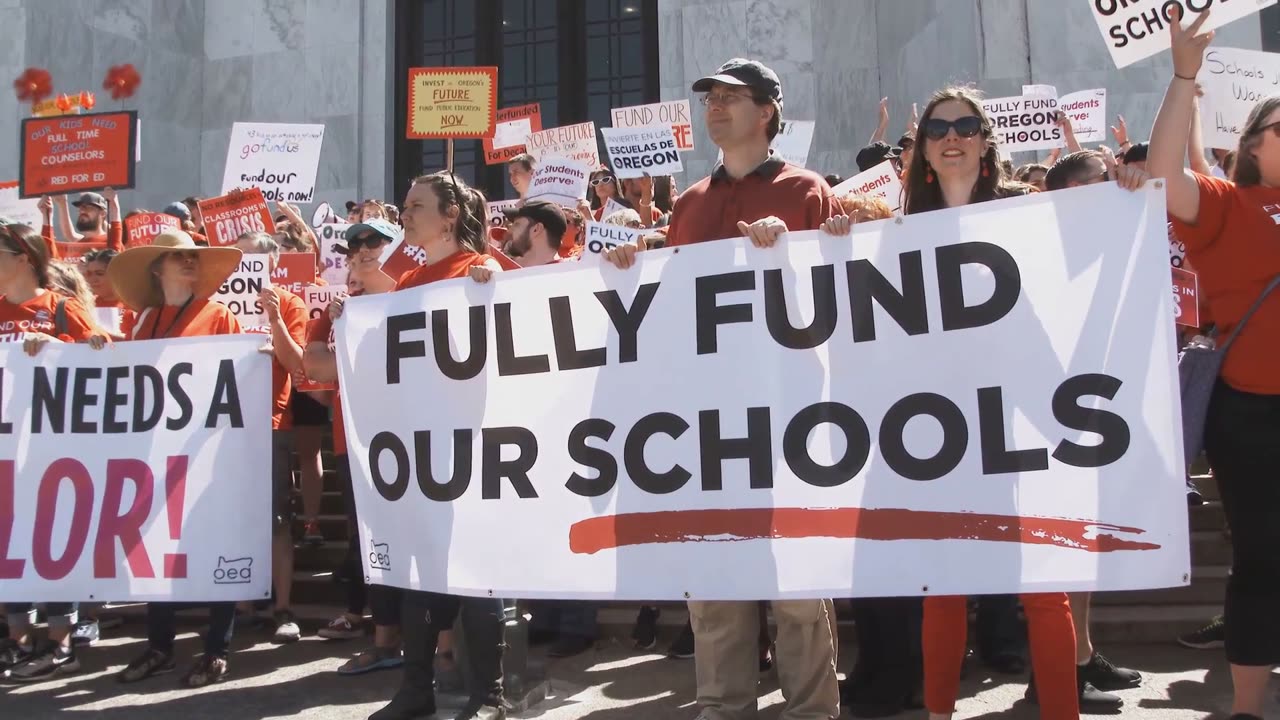Premium Only Content

New Law Forces Climate Change Curriculum in Illinois Public Schools—Is It Indoctrination?
Starting in the fall of 2026, climate activism will become an official part of the public school curriculum in Illinois, following a bill signed in August by Democratic Governor J.B. Pritzker.
House Bill 4895 mandates that beginning in the 2026-2027 school year, "every public school shall provide instruction on climate change." This instruction will include teaching about the environmental and ecological impacts of climate change on individuals and communities, as well as evaluating solutions to address and mitigate its effects. The curriculum will align with state learning standards, according to the bill. Additionally, the Illinois State Board of Education will, subject to funding, develop instructional resources and professional development for teachers to meet the new requirements.
The bill, according to the University of Illinois student newspaper *The Daily Illini*, was the result of efforts by young climate activist Grace Brady, a freshman at the University of Illinois College of Agricultural, Consumer & Environmental Sciences, along with Democratic state Rep. Janet Yang Rohr. Brady celebrated the bill's passage, calling it a “big step for creating more advocacy and student agency around climate change.”
Rep. Rohr also expressed support, stating, “Thanks to Governor Pritzker and my colleagues in the General Assembly, Illinois will soon offer fact-based coursework and teacher preparation programs on the history and future of climate change.”
While the specifics of the new climate curriculum will be determined by state education officials, critics argue that Illinois’ history of left-wing policies on issues like abortion and sexuality suggests the program may present a one-sided perspective on "anthropogenic global warming" (AGW) — the theory that human activities, rather than natural phenomena, are the primary drivers of climate change, posing significant threats to the planet.
The AGW theory, which has been central to progressive ideology, has been challenged by some, who claim that it is based on manipulated data. Proponents often cite a "97 percent scientific consensus" on AGW, but critics argue that this figure comes from a misrepresentation of a study reviewing 11,944 peer-reviewed papers, with 66.4 percent expressing no opinion on AGW. Many scientists included in the “consensus” have since voiced concerns about how their views were represented.
-
 3:59
3:59
Conspiracy Chronicle
1 month agoRadioactive Shipment Disappears in New Jersey—Are Drones on the Hunt?
1481 -
 2:33:51
2:33:51
John Crump Live
21 hours ago $27.37 earnedSaturday Night Main Event!
140K14 -
 13:57
13:57
TimcastIRL
1 day agoTrump NUKES IRS After DOGE Investigation, OVER 9000 Employees To Be FIRED
145K189 -
 13:35
13:35
Russell Brand
19 hours agoPFIZER JUST MADE THEIR NEXT MOVE AND EXPERTS ARE TERRIFIED
168K341 -
 1:15:57
1:15:57
Victor Davis Hanson Show
1 day agoOver Here, Over There: the Russo-Japanese War and Trumpian Peace Policy
87.2K37 -
 23:55
23:55
MYLUNCHBREAK CHANNEL PAGE
1 day agoThe Nephilim Are Here
104K103 -
 1:00:58
1:00:58
Break The Cycle w/ Joshua Smith
16 hours ago $2.21 earnedBreak The Cycle Ep. 247: Funny Guys w/ Robbie "The Fire" Bernstein
35.6K1 -
 41:26
41:26
TheTapeLibrary
1 day ago $10.73 earnedThe Disturbing Horrors of the Trans-Allegheny Lunatic Asylum
66.4K13 -
 10:07
10:07
Tundra Tactical
17 hours ago $7.33 earnedTRUMP'S HUGE GUN RIGHTS MOVE!
46.4K10 -
 1:53:23
1:53:23
Mally_Mouse
17 hours agoSaturday Shenanigans!! - Crowd Control - Content Warning
35.1K1